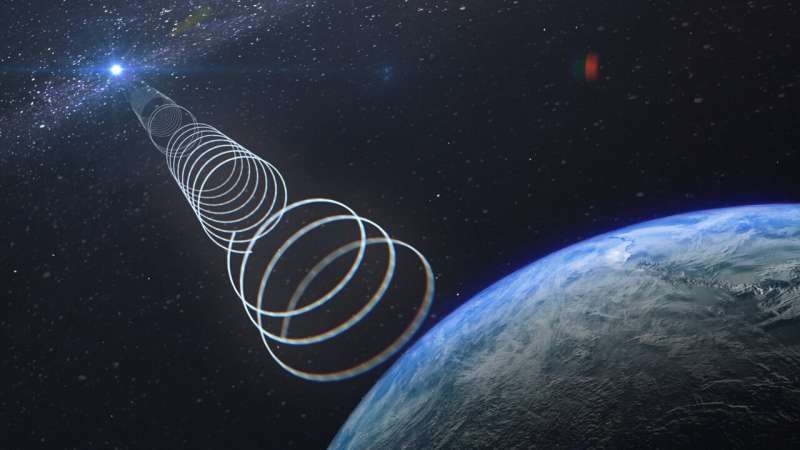Best of Last Week – A way to defend against asteroids, scale of data sharing, half of infected people get long covid

It was a good week for space research, as an international team of astronomers discovered strange radio waves emerging from the direction of the galactic center—its high polarization suggested the light was oscillating in just one direction and rotating with time. Also, Lorenz Roth of the KTH Royal Institute of Technology, Space and Plasma Physics in Sweden, found evidence in Hubble data of persistent water vapor in one hemisphere of Jupiter's moon, Europa. And a pair of researchers, Philip Lubin and Alexander Cohen, with UC Santa Barbara, proposed a new method for defending the Earth against cosmic impacts—deploying penetrator rods filled with explosives to pulverize them.
In technology news, a trio of researchers, one with Trinity College Dublin and the other two the University of Edinburgh, conducted a study of data collection that revealed the scale of data-sharing from Android mobile phones. Doug Leith, Paul Patras and Haoyu Liu found that in addition to being significant, there is no opt-out option for users. Also, a team led by a group at the University of Glasgow's School of Psychology and Neuroscience, looked into the factors that will be involved in developing an AI that 'thinks' like human beings. And a team at Lockheed Martin AI Center developed a new model to enable multi-object tracking in unmanned aerial systems to assist with navigating in their surroundings. Also, a team with members from Manipal Institute of Technology, Carnegie Mellon University and Yildiz Technical University developed a privacy-enabled model to classify financial texts while protecting users' privacy.
In other news, a team of researchers at Northwestern University's, Northwestern Medicine, found evidence that suggested one coronavirus vaccine may protect against other coronaviruses as well. And a team with members from Oregon State University and the University of Leeds, found that after two hours, sunscreens that include zinc oxide lose effectiveness and become toxic.
And finally, if you are among the more than 236 million people who have been infected with COVID-19 and have experienced what has come to be known as 'long COVID,' you may have plenty of company. A team of researchers at Penn State College of Medicine found that more than half of all people infected with the SARS-CoV-2 virus have experienced symptoms for six months or more.
© 2021 Science X Network